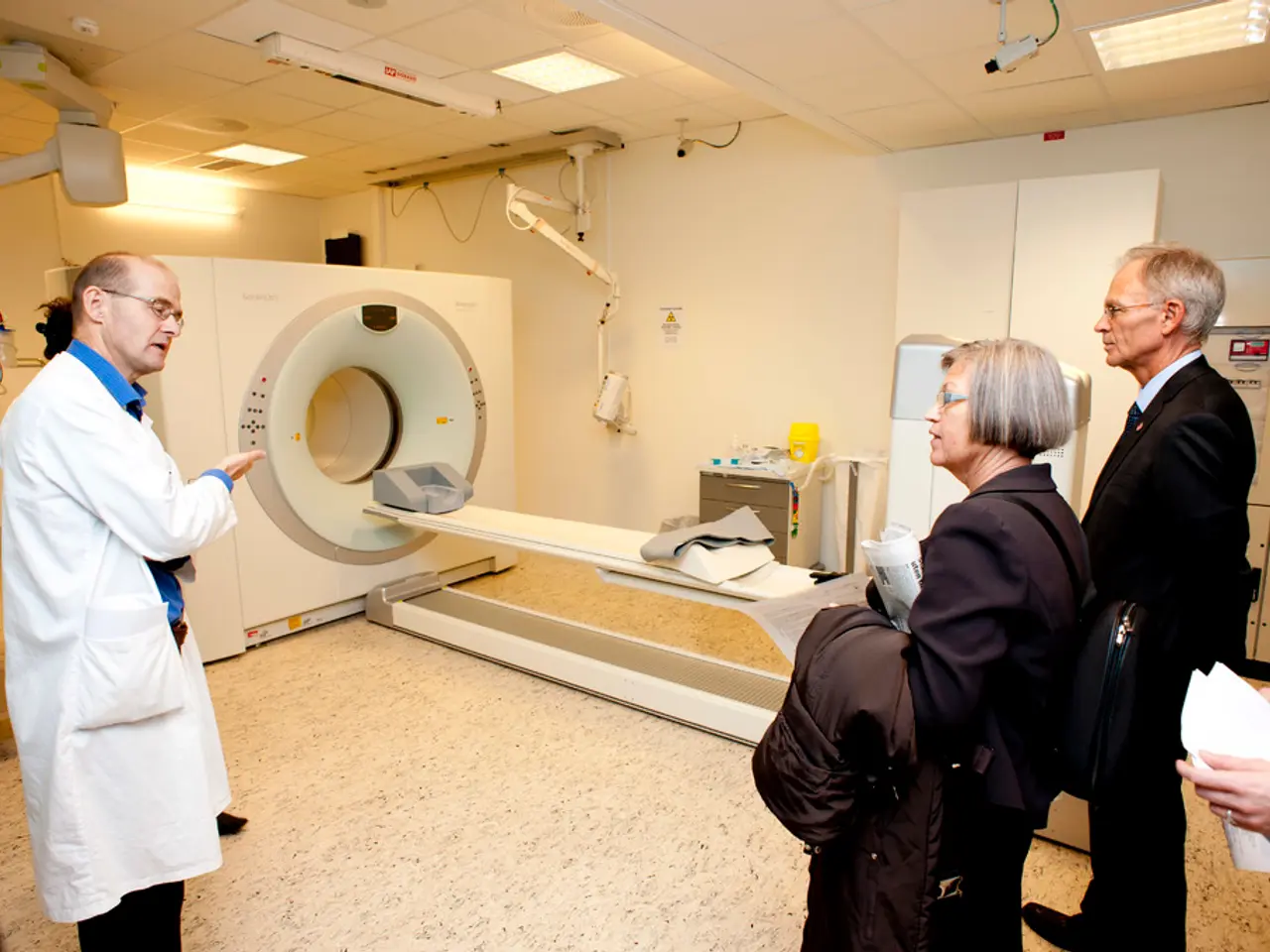Distinguishing symptoms between common cold and COVID-19: A guide to separation
In the face of the ongoing COVID-19 pandemic, it's essential to understand how it differs from the common cold, another respiratory illness. Both viral infections share some similarities, but they are distinct conditions with varying symptoms, transmission methods, severity, and treatment options.
## Symptoms
The symptoms of COVID-19 and the common cold can initially seem similar, but they differ significantly. Common COVID-19 symptoms include a fever, new continuous cough, and loss or change in taste or smell. Less common symptoms can include headaches, nasal congestion, and runny nose. In severe cases, difficulty breathing, persistent chest pain or pressure, and sudden confusion may occur.
On the other hand, the common cold typically includes symptoms such as sneezing, runny nose, and a sore throat, with coughing less common than in COVID-19. Fever is less frequent and usually mild.
## Transmission
COVID-19 is primarily transmitted via respiratory droplets and contact with contaminated surfaces. It is highly contagious and can spread before symptoms appear. In contrast, the common cold is also transmitted through respiratory droplets and contact with contaminated surfaces, but it tends to spread more slowly than COVID-19.
## Severity
COVID-19 can range from mild to severe, with a higher risk of complications such as pneumonia, acute respiratory distress syndrome, and other severe health issues. Certain groups, like older adults and those with underlying health conditions, are more susceptible to severe outcomes. The common cold, however, is generally mild, with most people recovering within a week without serious complications.
## Treatment
Treatment for COVID-19 focuses on symptom management and may include antiviral medications for severe cases. Vaccination is a key preventive measure. For the common cold, treatment is primarily supportive, focusing on relieving symptoms with over-the-counter medications and rest. There is no specific antiviral treatment available for the common cold.
It's important to note that while both conditions can present with similar initial symptoms, COVID-19 is typically more severe and carries a higher risk of serious complications, especially for vulnerable populations. Monitoring symptoms and getting tested if COVID-19 is suspected is crucial for early diagnosis and management.
In conclusion, while the common cold and COVID-19 share some similarities, they are distinct conditions with significant differences in symptoms, transmission, severity, and treatment. By understanding these differences, we can better protect ourselves and others from these viral infections.
- Scientific research in the field of medical conditions has been working to develop predictive models for distinguishing between COVID-19 and the common cold, aiming to improve health-and-wellness practices.
- Some medical-conditions, such as colitis, ulcerative colitis, depression, bipolar disorder, psoriasis, and eczema, might not be directly related to COVID-19 or the common cold, but they remain crucial aspects of health-and-wellness management.
- SARS and COVID-19 are both coronaviruses, respiratory illnesses that share some similarities with the common cold, but they differ in their severity and transmission methods.
- In addition to adhering to health-and-wellness protocols for preventing COVID-19 and the common cold, individuals with medical conditions like colitis, ulcerative colitis, depression, bipolar disorder, psoriasis, and eczema should also prioritize regular medical check-ups.
- Despite its severe nature, some studies suggest that the likelihood of experiencing depression or anxiety as a consequence of COVID-19 is quite common due to the isolation and stress associated with the pandemic.
- The common cold and COVID-19 may share certain initial symptoms, but unlike the common cold, COVID-19 can lead to complications like pneumonia, acute respiratory distress syndrome, and other severe health issues, particularly for those with underlying medical conditions.
- AQ, an air quality index, plays an essential role in our health-and-wellness, as it can affect both our respiratory conditions (such as COVID-19, the common cold, and asthma) and overall wellbeing.




